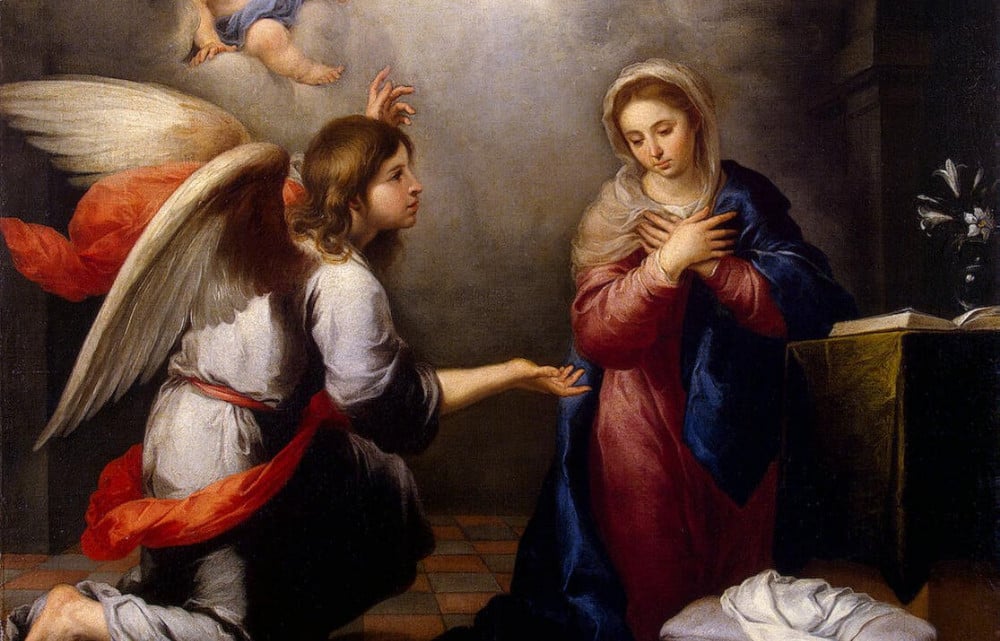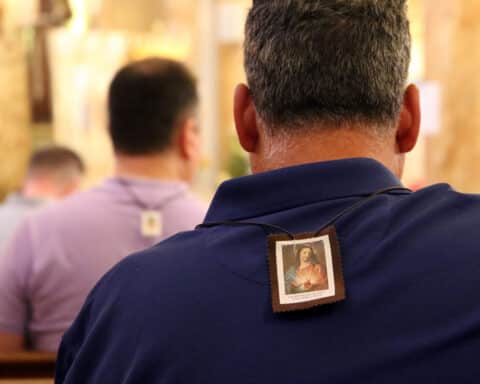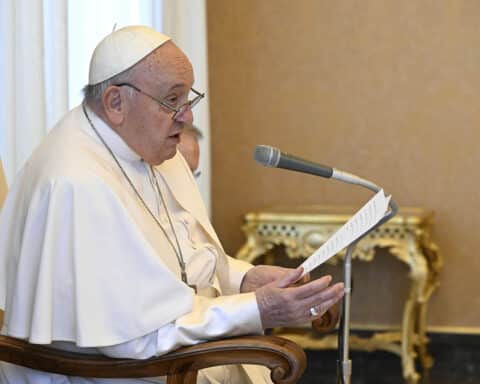God promises healing from generation to generation, but to those of us who are suffering from the effects of family abuse and dysfunction, the hope of such healing can be so hard to believe. When our hope lags, we can look to our Blessed Mother and see that God only needs one person to say “yes” for hearts to be healed, both in the present and for the future.
If we look at Mary of Nazareth one minute before the angel arrived in her life, we see a girl with an ancestry of lost riches, destroyed security, covenants made and forsaken by one unfaithful side — her side. This pain, betrayal and disappointment was her family’s legacy, all the way back to Adam and Eve. There were bright lights, yes, but still she was the daughter of a kingdom trapped in a cycle of destruction. She lived in a time when there was hope of that cycle breaking, but the best idea anyone around her had for breaking that cycle involved violence, using the very conflict and devaluation of humanity that had caused all her people their problems from the start.
Then an angel showed up in her life and told her the impossible would happen through her.
She did not say yes at first. She asked, “How?” How was this cycle going to break into a new, godly life if her people weren’t living in a way in which such a concept could take flesh? The angel answered that God’s spirit and power will take charge. The future will be something new, something beyond her experience.
From generation to generation, her people had been waiting for a new thing upon the earth, a new song to be sung. God made her to sing that song. Whatever language we use to translate that fiat today, that song was trust.
We can trust that God made Mary wise enough to know that this would not be easy. He knew she would be afraid. He also made sure the angel would assure her of divine protection: She would rest in the shadow of God’s power. Shadows are darkness. Each step forward would be toward the cross she could not see, but beyond that waited the empty tomb and a kingdom that nothing had the power to end.
Unlike her forebears, she had trust not in present comfort but in God’s end result. This eternal kingdom had its roots in her past. With her yes, it would grow in the present and give life to a new future. She had to be willing to live in ways that no one before her had ever lived, to keep leaning on God when everyone around her was telling her God was not going to show up, that they had to rely on themselves to fix the unfixable.
From the moment of the Annunciation until today, Mary sings a new song of trust in God’s provision. This song is especially poignant and exquisitely instructive for survivors of intergenerational trauma. God gives Mary as mother in a special way to all of us who learned criticism, disconnection and cruelty in our childhood homes, from people who most likely learned such things in their childhood homes.
We have so much to learn from our spiritual mother about how to drop the destructive behaviors we learned in our families of origin and instead choose to live in new, authentic ways — ways in which we trust in God and not in people. God then uses our trust in him to build a new present and a new future from the wreckage of the past, just as he did on a much larger scale with Mary.
When we join our voices with Mary’s in trust in the mere shadow of God’s power, we open ourselves to previously unimagined possibilities. When we choose to try therapy, attend support groups where we can learn healthy ways of relating, and when we are gentle with ourselves and our children, we join in Mary’s song of trust. We let go of the old, and we embrace the new way, the eternal way of living God’s love.
We say with her, “Let it be done.” We then see God restore what has been lost, rebuild the destroyed, and refill those hearts broken and emptied through rejection of the good. Every time we turn from the broken habits passed down to us from broken people, we make Mary’s fiat our own.
Erin McCole Cupp writes about trauma and addiction recovery from a Catholic perspective. She is the author of “All Things New: Breaking the Cycle and Raising a Joyful Family” (OSV, $18.95).





